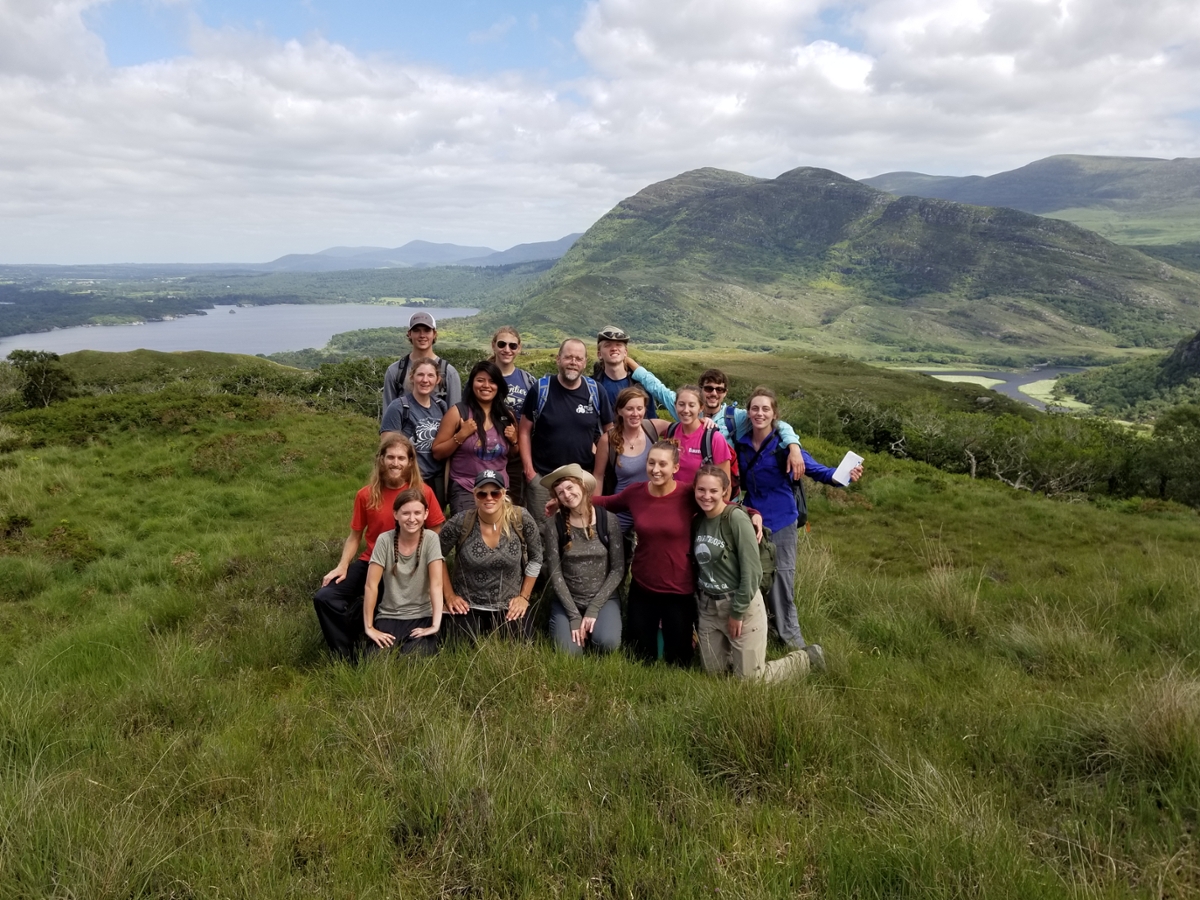
July 19, 2018
International study gives students a new perspective on land management issues
CARBONDALE, Ill. — Poor funding, underemployment and misinformation are all common challenges for proper land management in the United States. But while travelling internationally, several Southern Illinois University Carbondale students have discovered unique solutions.
Over the past few years, forestry students from SIU have travelled to Ireland to experience a different view of land management practices and expand their understanding of diverse ecosystems.
This summer, 14 students joined the program to strengthen their base of international issues. For forestry professor and program director Charles Ruffner, the opportunity was a key way to prepare students for future environmental work.
“The objective is to expose them to broad conservation biology issues,” Ruffner said. “Conservation biology is the ecological problems that the whole world faces; lack of water, overuse, over visitation and over creating. All of those things are shared by every country essentially.”
By learning from multiple nations, students and researchers are able to build professional references and work towards more effective solutions, Ruffner explained.
New solutions to common issues
While domestic internships, camps and programs have provided a base for these students, international work offers another layer of resources to solve common ecological issues. For Taryn Bieri, sophomore from Prairie du Rocher, Illinois, the experience gave her an entirely new perspective and a chance to approach issues with new solutions.
“I was surprised to hear of the different approaches taken in Ireland in reference to issues we shared, such as the overpopulation of deer,” Taryn said.
Instead of allowing the public to hunt in specified time periods, rangers systematically manage the population to ensure the deer remain strong and healthy, Taryn explained.
For Jacob Bolton, junior from Peoria, Illinois, the experience was very similar. After working with nonnative ecosystems, Bolton was able to better connect the dots on diverse conservation issues.
“I understand how other countries have failed and succeeded in managing their natural resources, which is very important in creating a plan that will have a long-term outcome,” Bolton said.
Preparation for future careers
For the students participating in this program, the international experience has prepared them for future work across the world.
The exposure is really powerful for these students, Ruffner explained. There is a tight-knit community of forestry professionals, and working with them provides unique opportunities.
Like many students, Bolton started his collegiate experience with a narrow idea of what he could do in his profession. His only real goal was to spend time in the forests. But now, while currently working for the USDA Forest Service in the Colville National Forest and travelling over the summer, he believes he is ready for a future career that could very well extend worldwide.
